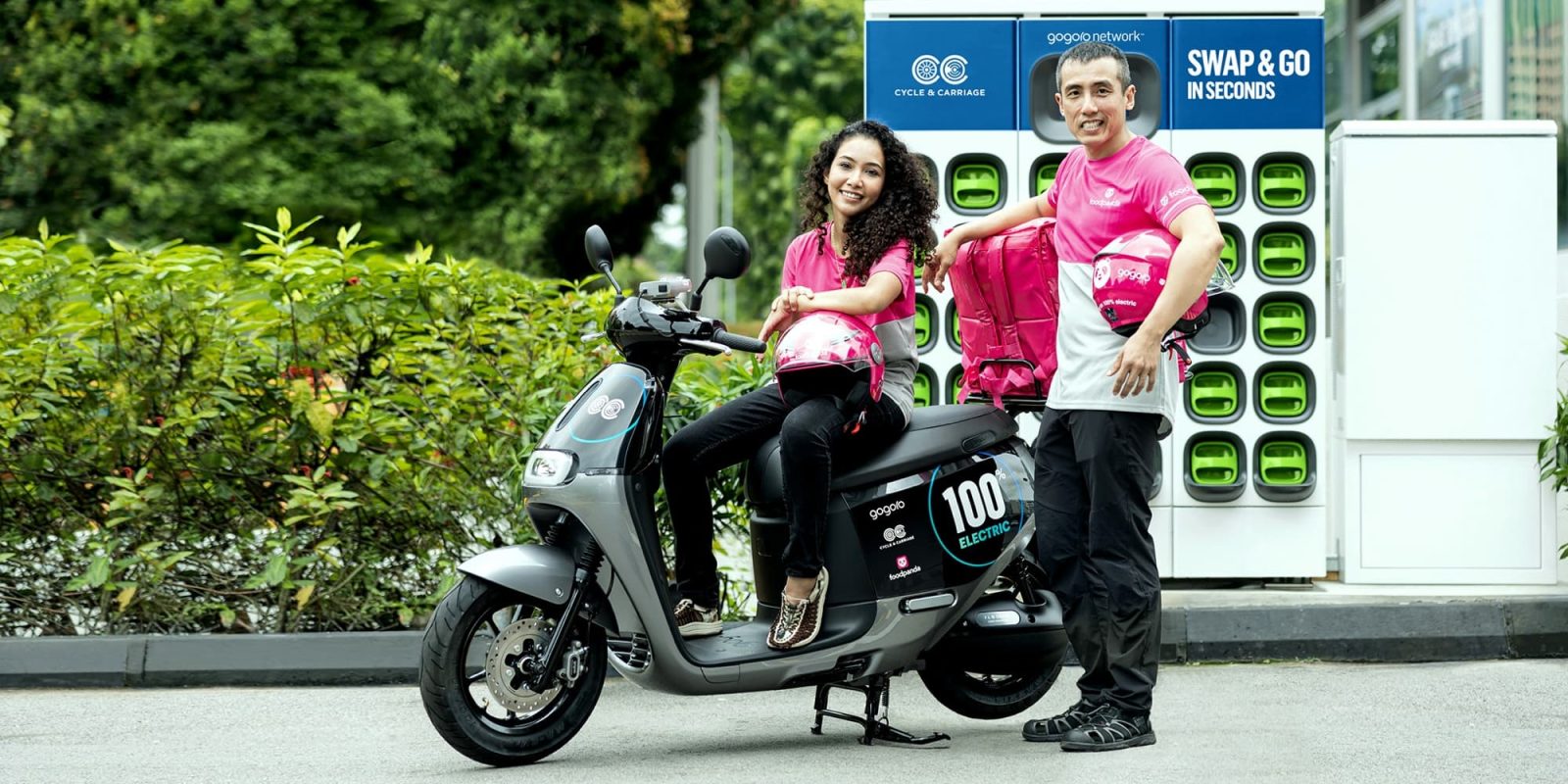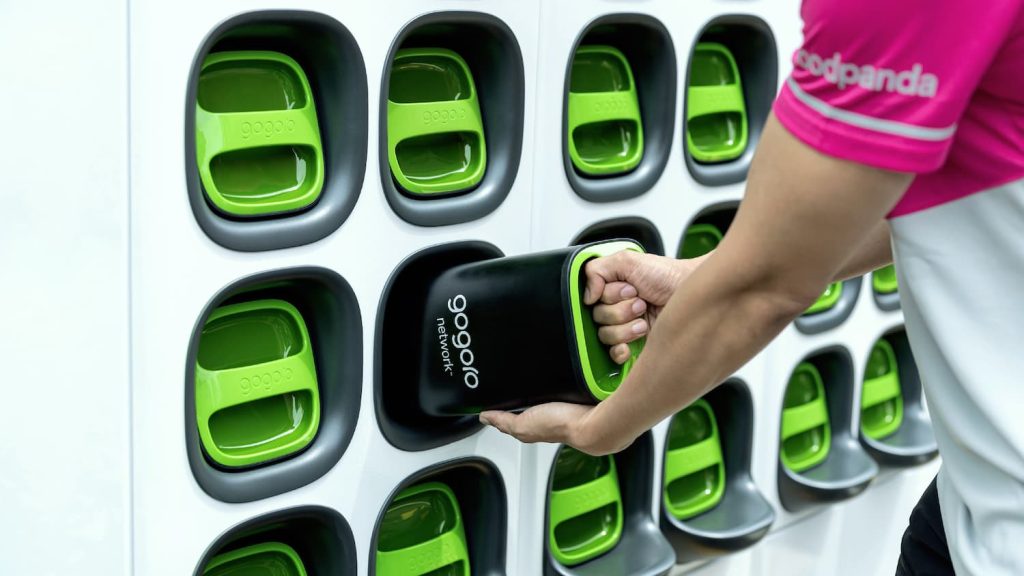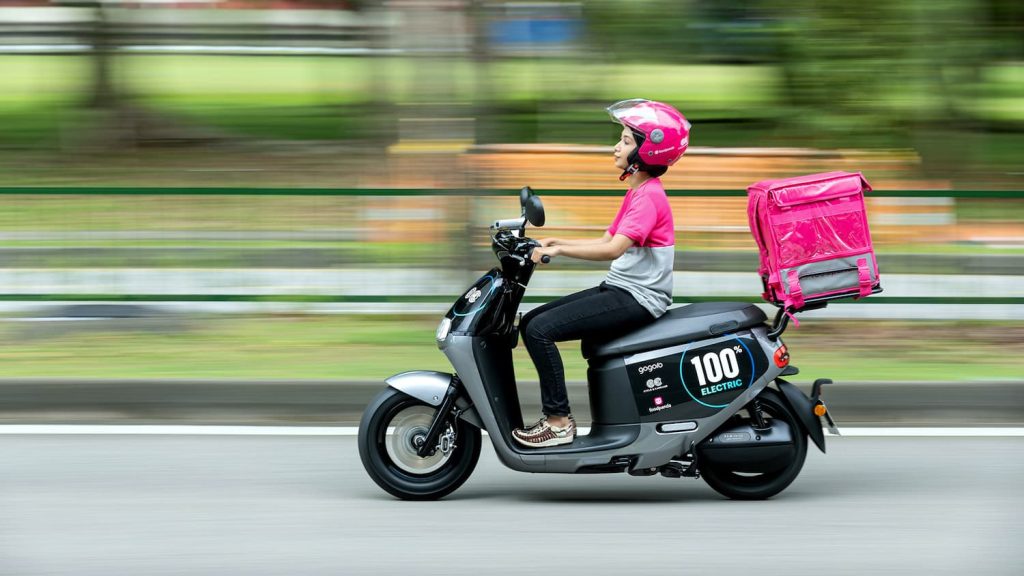
Gogoro announced today the expansion of consumer sales of three of its electric scooters in the Singapore market, marking a major expansion from the company’s commercial fleet-based entry into the market.
Known for its battery-swapping network that fuels its own electric scooters as well as those produced by other major motorbike manufacturers such as Yamaha and Aeon, Gogoro has become the de facto battery-swapping standard for two-wheeled EVs.
The company has expanded its battery-swapping network into several countries across Asia, often beginning with commercial operations. Last year, Gogoro partnered with Food Panda to outfit delivery riders with Gogoro scooters and batteries in Singapore.
Cycle & Carriage Singapore (C&C) served as the importer and distributor, and is now expanding operations to include consumer sales of three electric scooters. The models include the Gogoro VivaMix, Gogoro Premium, and Gogoro SuperSport.
“Together with Cycle & Carriage, we are introducing a new generation of two-wheel urban transportation and refueling in Singapore. Gogoro battery swapping provides a quick, easy and safe electric refueling experience that doesn’t require parking or time to charge,” said Henry Chiang, CEO of Gogoro. “Singapore has taken a proactive approach to accelerating EV adoption and the Singapore LTA’s TR25 electric vehicle charging standard has established a strong set of requirements for Southeast Asia to embrace.”

“Gogoro is Cycle & Carriage’s first foray into the two-wheeler electric mobility business here in Singapore and it highlights our commitment to support the Singapore Green Plan 2030,” said Wilfrid Foo, Managing Director of Cycle & Carriage Singapore. “While battery swapping technology is relatively new here, we believe in the products and our partnership with Gogoro will accelerate the growth.”
Gogoro’s battery-swapping standard has proven popular in its domestic market of Taiwan, where over 1.4 million batteries are in circulation. The company boasts hundreds of millions of battery swaps with hundreds of thousands occurring every day. Battery swap stations outnumber gasoline stations on the island and riders are rarely more than several hundred feet from the closest battery swap kiosk.
The company’s operations are smaller in other countries into which it has expanded, but represent an important launching pad in various regions as Gogoro hopes to replicate its local success on a global level.

Electrek’s Take
The expansion of consumer sales of Gogoro’s scooters in Singapore is particularly interesting to me for two reasons. First of all, EVs make up only around one percent of Singapore’s two-wheeler market, meaning there is a lot of room to replace combustion vehicles.
Secondly, and perhaps more importantly, Singapore’s two-wheeler market is a much smaller portion of the total vehicle landscape than most countries that Gogoro has entered. By comparison, other markets that Gogoro has targeted, such as Taiwan, India, and Indonesia, all have more two-wheelers than cars. But compared to the several motorbike-majority countries that Gogoro has entered, scooters and motorcycles only make up around 15% of the Singapore transportation market, meaning Gogoro is working in areas with much smaller two-wheeler shares. That’s likely good news for Gogoro fans in other countries that hope to have the battery-swapping giant one day make landfall on their own shores. Of course, Singapore’s size and geography likely play a unique role in its selection as a point of expansion for Gogoro, but I still see it as a promising sign for a wider Gogoro rollout.
At the same time though, there’s also the issue of current financial troubles at Gogoro, evidenced by multiple successive quarters of net operating losses in the millions of dollars. But if Gogoro is to turn things around, success on a global level could be a major contributor. The thousands of swapping stations across Taiwan are evidence of the operational success of the system, and now the company needs to demonstrate that it can also be a financial success around the world.
FTC: We use income earning auto affiliate links. More.


